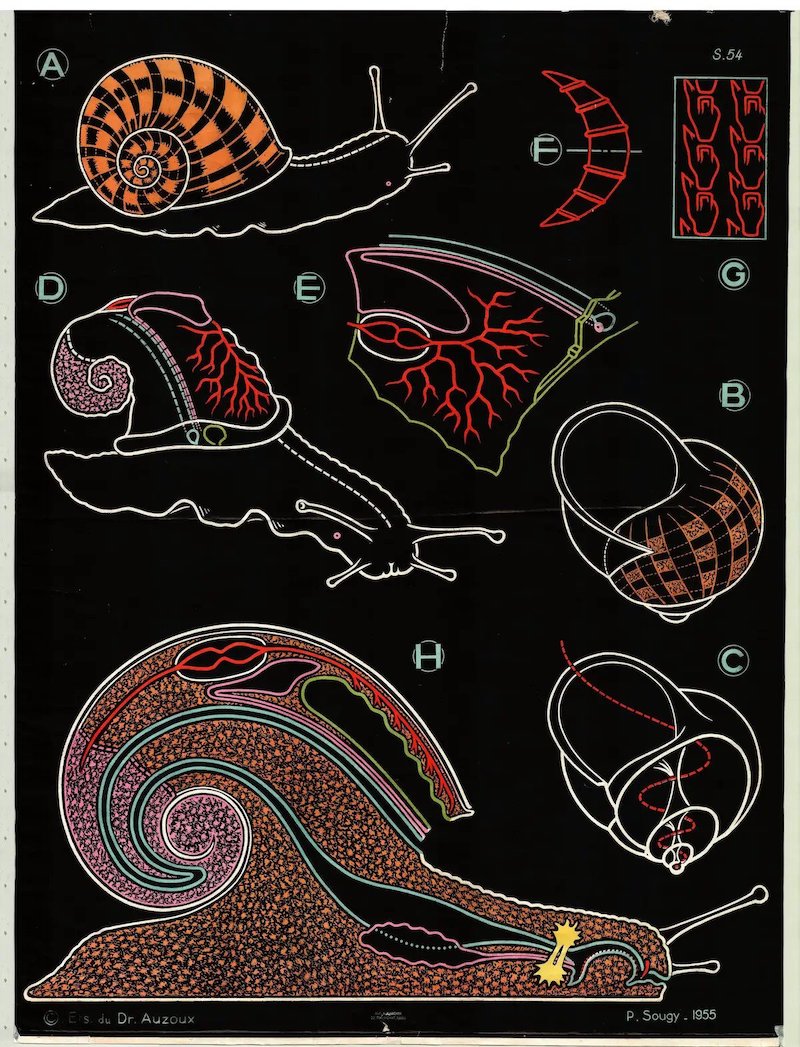At the risk of sounding controversial, I'm going to assert that Mondays are better without work 
Happy invoicing!

- The Titanic of the Pacific - The story of the wreck of the Valencia off the coast of Vancouver Island in 1906: ”The trip required sailing through the Strait of Juan de Fuca, part of the stretch of ocean between southern Oregon and the northern tip of Vancouver Island, British Columbia, where hundreds if not thousands of ships had wrecked by the early 20th century, earning it an ominous moniker: Graveyard of the Pacific.”
- Timeline: The evolution of life - ”The story of evolution spans over 3 billion years and shows how microscopic single-celled organisms transformed Earth and gave rise to complex organisms like animals.” This was originally published in 2009 but has just been updated to reflect the latest scientific knowledge

- What Rosalind Franklin truly contributed to the discovery of DNA’s structure - ”Franklin was no victim in how the DNA double helix was solved. An overlooked letter and an unpublished news article, both written in 1953, reveal that she was an equal player.” That blurb doesn't seem accurate to me: the story suggests that Franklin played an even greater role in the discovery of the double helix than was previously thought, which makes it even less excusable that she was elided from the story.
- On the Road to Failure - ”Presentations and pitch decks by the largest business failures and corporate frauds.” Next time you have to create a slide deck, why not base it on one from Enron or FTX?

- Tetris’ creators reveal the game’s greatest unsolved mysteries - Some Bank Holiday viewing: ”Despite creating one of the most recognizable video games of all time, Tetris creators Alexey Pajitnov (who first coded the game in Russia) and Henk Rogers (who was instrumental in bringing the game to prominence in the West) have not been all that recognizable to the general public. That has started to change, though, with the recent release of Apple TV's Tetris movie, which dramatizes the real-life story of the pair's unlikely friendship and business partnership.”
- Science in the Making - The Royal Society's new site for its digitised archives: ”'Science in the making' is an ambitious digitisation programme that aims to make archival material related to the publication of the Society’s scientific journals available online to all. On this website you can discover the complex material that lies behind the published articles: peer reviews, correspondence, photographs, illustrations and early drafts.” There are some interesting starting points in this announcement: Travel through 400 years of scientific history with the Royal Society’s Science in the Making archive portal
 :
: - French Cyclists Create Record-Breaking GPS Drawing of a 637-Mile-Long Dinosaur - ”Four French cyclists have claimed the Guinness World Record for the largest GPS drawing by a bicycle team. Their winning piece: a 1,025 km-long (637-mile-long) depiction of a velociraptor that took 43 hours and 47 minutes to complete.” A bit more impressive than pilots drawing dick pics on FlightRadar24

- How we discovered the true origins of a pint of lager – new research - ”The origins of the bottom-fermenting lager yeast Saccharomyces pastorianus have long been shrouded in mystery and controversy. However, by combining historical research with modern science, a team of scientists from the Technical University of Munich and University College Cork (including myself) have uncovered the likely genesis – and path to world dominance – of S. pastorianus.” Proper Bank Holiday science

- Travelling Modern Europe with a Victorian Railway Guidebook - Jennifer Walker considers the notion of using Bradshaw’s to plan your European trip: ”Bradshaw’s was one of the original guides that inspired the British to travel the Continent for leisure… Dracula is spotted reading an ‘English Bradshaw’s Guide’ as he prepped for his journey to England in Bram Stoker’s classic, and literature’s most iconic traveller, Phileas Fogg also carries a copy with him in Jules Verne’s Around the World in 80 Days. If it’s good enough for Dracula and Phileas Fogg, it’s good enough for us!”
- Paul Sougy : Luminous Illustrations Of Animals – c. 1952 - ”Lush illustratiosn of insects and animals for French children.”

Happy invoicing!



 for this one but notice that it is a faithful reproduction of the original.
for this one but notice that it is a faithful reproduction of the original.



Comment